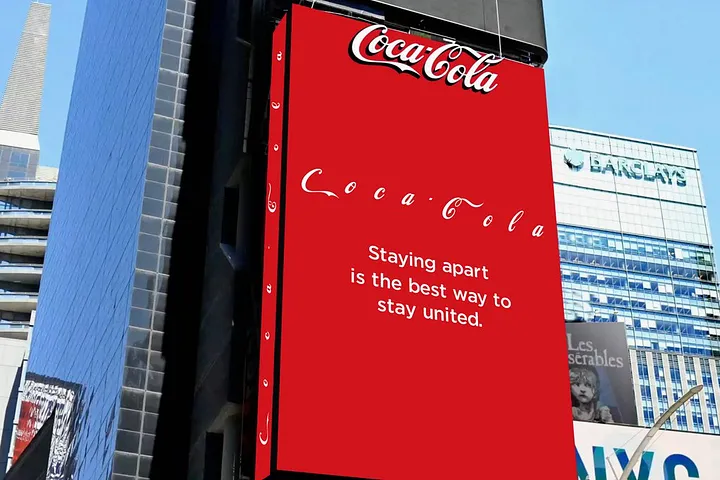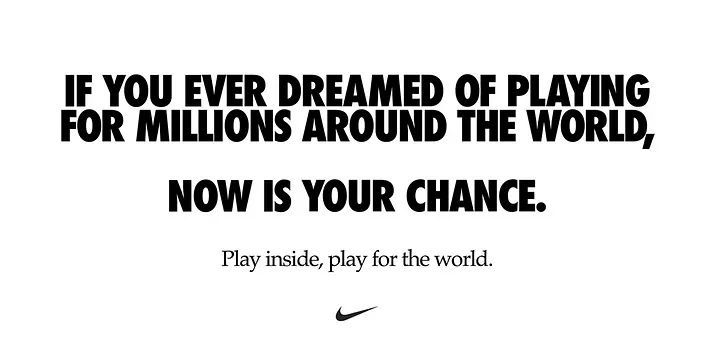Opportunism in Advertising.
Opportunism: (noun) the taking of opportunities as and when they arise, regardless of planning or principle.
Based on this definition we can arguably say that every idea, campaign, or ad is based on opportunism. Planning should be the foundation of any marketing action obviously but that not always happened. And when it happens, it isn’t always good. But this a path that I am not taking today.
Today I want to talk about the other part of the definition of opportunism: the principles. We can say that some brands have them (i.e. Patagonia) but isn’t all advertising a little principle-less? I love advertising, but as advertisers, aren’t we always looking for a way to persuade the consumer, trying to find weaknesses, trying to catch their attention, to sell a product or service that yes, they may need, but we are not telling them to buy any shoes, we’re telling them to buy a specific brand. For me, advertising is by definition, opportunistic. We work hard trying to find the best opportunities to intercept our audience and we craft ideas purposely to catch their attention. We take a meme, a trend, a style that people loved and turn it into an ad. Creatives will think ideas for a certain brand but if the opportunity arises, they’ll use it for their competitors just to have that ‘creative idea’ on their portfolios.
Do you think advertising is opportunistic? This is a question that reminds me of my years of marketing student back in Argentina when teachers would ask us ‘Is marketing good or bad?’. There is no right answer to these questions, just perspectives, opinions.
Every brand saying ‘These are hard, uncertain times (bla bla bla) but we’re here for you’ doesn’t sound a little, ejem, opportunistic? Unless you have a real solution to this, STFU.
Opportunistic, yes. Interesting? Maybe for people in advertising. Relevant to the product? Hell No.

On the other hand, we have this, arguably the same idea. Same idea, same execution. But the concept, in this case, is deeply connected with the product.

Opportunistic, yes. Interesting? Yes. Relevant? to the product? Heck yeah. The idea is so tight to the product, that they need a three-word tagline while Coca-Cola needed the triple amount of words to hardly connect the idea with the product. And you can take that same idea and replicate it with almost every brand and it’d ‘work’. In fact, they did.
Let’s see another contrast.

Nike found a formula where they can say almost everything and it’ll sound/look cool. Well, almost everything. Do we really need to hear this?
On the other hand, we have Dove.

Opportunistic? Sure. But the tone and the message make this campaign less invasive and even feel a little bit more honest. The focus is not the product but the people; not the superficial ‘beauty’ but the courage. They are not talking about their product but even though we can see it all over this campaign. On top of that, if you see the
Advertising, now more than ever, it’s about timing, reacting to the every-day, every-minute conversation, in the world or your city. Brands take a topic and they try to make it about themselves and, doesn’t that make it a little bit, opportunistic?

